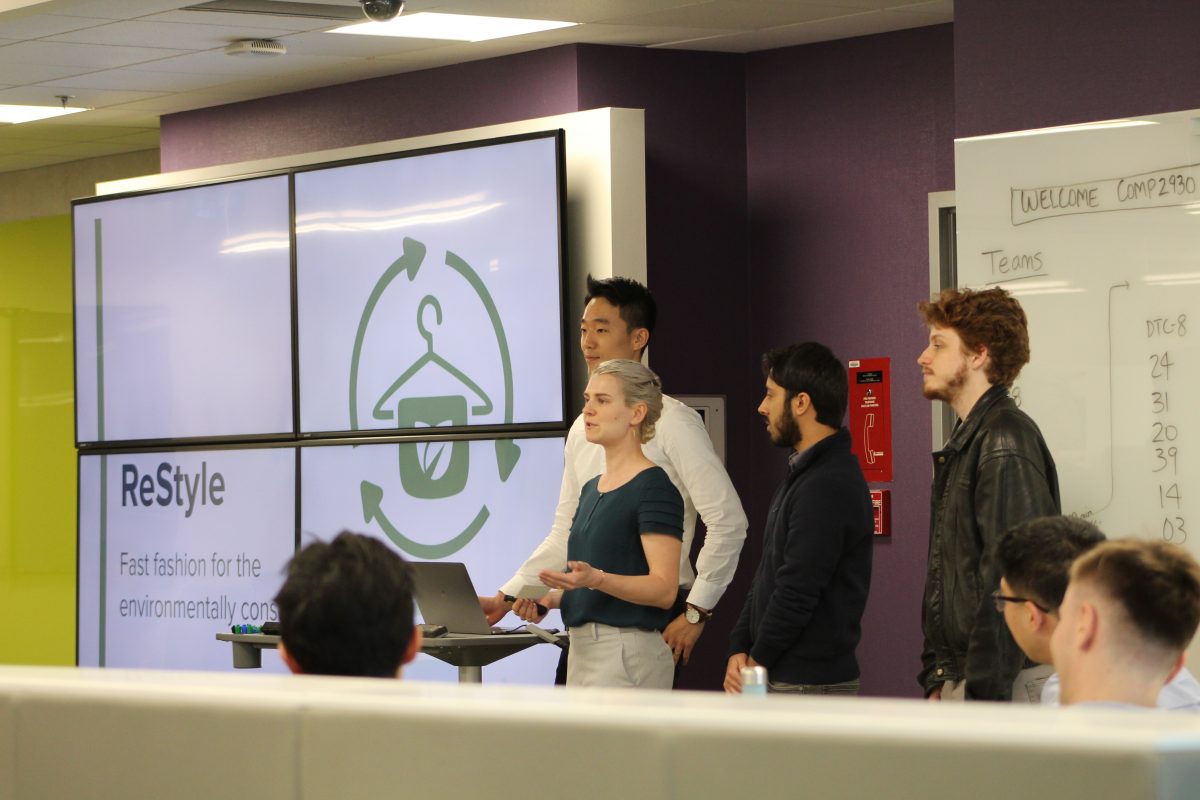If you had five weeks to make an app to save the world, what would you create?
That was the challenge put to over 200 software development students in their first year of Computer Systems Technology this past month.
Over the course of five intense weeks, teams of five students worked (and cried) together to create and build apps and games with an Ecocity theme.
Welcoming Ecocity Summit this fall
The theme anticipates the upcoming Ecocity World Summit that BCIT is hosting this October 7-11 in Vancouver. Special guests for the term-end apps demo included Rachel Telling from the City of Vancouver, Gord Inglis from Metro Vancouver, and Tessa Jordan of BCIT Sustainable Business Leadership program. They attended to help select apps which will be given the opportunity to present to Ecocity guests during an event side visit to BCIT Downtown Campus during the fall conference.
For this project, students could address an issue touching on any of the Ecocity Standards, which together offer a vision for an ecologically-restorative human civilization. Students approached the ills of our planet and societies from a number of angles.
Spare plugs?
Many apps helped connect people to other people or their resources, from social needs to fashion sharing.
ZapShare’s electric charger share supports BC’s aspiration to migrate to all electric cars by 2040. It connects electric car drivers with local connections who are willing to share their electric outlets – for a fee.
ReStyle enables people to swap clothes rather than to add to the growing fabric waste stream. Judging from questions for the group, there seemed to be a significant potential user market.
“As a lover of fashion, I wanted to find a way to change up my wardrobe without negative effects to the environment, or my bank account,” explained app designer Catreana Cunningham. Her team took up the structure of the growing sharing economy.
“Swapping is reusing, so if you can swap something you’re not going to reuse, it’s much better than recycling or throwing it out” added team member Zack Taylor.
Gamification of eco-living
Team Icopico took an irresistibly cute approach, creating a game where eco life choices determine the health of your virtual pet. If you get outside and do active transportation like walking or biking, your pet could get muscular. You need to complete various tasks related to eco living, and every time you’ve completed ten actions your pet has a chance of evolving.
Adaptation approaches
Some teams tackled big picture issues like emergency preparedness or wildfires.
The Save the Forest game was designed for forest fire prevention education.
“Wildfires are increasing every year in BC, and we thought that an educational game would make it easier to educate younger Canadians about prevention” said team member Aleksandra Sorokina.
Intense project for a range of goals
The five-week project enables students to practice working with a small team on a high-intensity project. Not only do students create a working prototype, they practice all the soft skills needed to effectively work on teams, including communication, overcoming challenges, making use of team members’ strengths, and helping shore up weaknesses.
“It’s really inspiring to see this group of enthusiastic and highly energetic people grappling with these big issues.” Gord Inglis, Metro Vancouver
Students commonly cited scoping and work estimate challenges, and uniformly expressed relief to get to the end of their term!
Check out the overview of apps to be showcased at the Ecocity World Summit.
Our students work on projects all year long. Do you have an idea for a computing student project?
